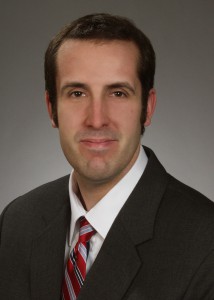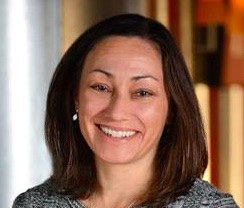♫ It’s coming on
It’s coming on
It’s coming on
It’s coming on
My future is coming on…♫
Lyrics and music by: Damon Albarn, Teren Devlon Jones, Jamie Hewlett, recorded by The Gorillaz.
(photo by Sean Creamer, used under a Creative Commons Licence)
The predictions are coming in fast and furious! In this Part 2, we have prognostications from:
- Jeremy Hessing-Lewis
- Stephen P. Gallagher
- Colin Lachance
- Jared Correia
- Tim Baran
- Niki Black
- Jordan Furlong
- Larry Bodine
- Darin Thompson
Jeremy Hessing-Lewis
Introduction:
- Law as a Lifestyle Company: Traditional commitments to the billable hour meant that the practice of law rarely worked in half measures. As a lawyer in private practice, your options tended to be 0% employment or 130% employment. With the emergence of creatively structured alternative fee agreements (AFAs), we will see more lawyers opt for less than full-time practices. This will include increasing numbers of practitioners pursuing phased retirement, parents with young children, and those with employment or interests outside of the practice of law. While AFAs and new technologies will give law firms the option of becoming lifestyle businesses, regulatory bodies will struggle to keep-up with these changing practices.
- If This, Then…: With practice management technology fragmented among an increasing number of web applications, lawyers will become increasingly interested in the connections between these applications (the application programming interfaces or APIs). Direct APIs allow independent applications to share information. More complex intermediary tools (e.g. Zapier, IFTT), will increasingly be used to weave together multiple APIs and automate administrative tasks within a practice. Ronco’s dream will finally be fulfilled: “Just set it and forget it.”
- Demographic Shifts: Baby boomer lawyers are starting to read obituaries of law school colleagues. There is no better motivation to reevaluate priorities than the passing of peers. The valuation and sale of practices will decline, to be replaced by younger lawyers who are simply willing to take on the files. For every client that is an asset, there is another that is a liability. We will see more succession planning that addresses continuity rather than cash.
- Renewed Commitment to Justice: Following Donald Trump’s electoral victory, the Lawyers of the Left secret Facebook group has accumulated over 188k members. Many of the posts to this group have featured lawyers from all practice areas renewing their commitments to justice. In particular, many mid-career lawyers have expressed a rekindled appreciation for why they went to law school in the first place.
Thanks Dave and best of luck in the new year!
- a business lawyer with Vancouver-based Small Law;
- a legal practice management consultant through Appropriate Legal Technology; and
- the Senior Digital Advisor at the legal marketing agency, Skunkworks Creative Group.
 |
Jeremy Hessing-Lewis / Senior Digital Advisor jeremy@skunkworks.caSkunkworks Creative Group Inc. 604.739.8976 600 – 55 Water StreetVancouver, BC V6B 1A1 http://skunkworks.ca |
Stephen P. Gallagher
Aging of the legal workforce has finally hit the “proverbial brink wall.” According to a recent Oregon Attorney Assistance Program (OAAP) Retirement Survey, of the 6000 members over 50 who filled out the survey, bar members 60 – 69 represented over half (53%) of survey participants. To add insult to injury, 50% of these respondents report that they are planning on retiring from legal practice in the next five years. The brain-drain is clearly underway.
- In order to continue to attract talent, law firms will have to demonstrate concern for senior partners who need support in moving away from full-time practice. Young lawyers will be watching this very quickly. The worst thing that a firm can do is to do nothing about it.
- In order to continue to attract talent, law firms will have to adopt more flexible career paths for all lawyers that include formal flex-time guarantees for both aging lawyer as well as mid-career lawyers, who may not want to “Die at their Desks”.
Stephen P. Gallagher sees himself as a student of the legal profession. I am a former Director of Law Practice Management for the New York State Bar Association. Currently, I am a Baby-boomer born in 1946, and since I have been working in the legal profession for the past thirty-years, I consider myself a bit of a transition expert. I am an adjunct instructor of marketing at a Jesuit university, and I work with law firms and bar associations, to help get conversations started regarding the Aging of the Legal Marketplace. I have a limited coaching practice built around grandchildren’s schedules. sgallagher@leadershipcoach.us
Colin Lachance
My first inclination in looking ahead to the future of law in 2017 is to look into what has happened in other industries over the past 5 to 10 years and pick from there the changes that the legal industry might be ready to face. But as even that might be too fanciful a thought, I’ll instead over some broad predictions of what’s ahead without going too deeply into whether or which might hit the business of law.
- Cloud backlash. No I’m not talking about arguments against moving services to the cloud in the first place, but backlash and exhaustion from those who have been there for some time. Two triggers here: sheer volume and unwanted sharing. Honestly, I don’t seem to go very long without having or choosing to sign-up to a new cloud-based service to carry on my business and personal life. But what really begins to concern me is losing visibility and control of cross-service data sharing (i.m looking at you, G-Suite!). Surely, I’m not alone in this. But we press further into this world even as the news mounts of privacy breaches at one after another provider, and even as the daisy chain of our digital identities exposes our complete selves to the weakness of security practices at any link. I can’t tell you what form the backlash will take or what options exist, just that anxieties will be high and that 2017 will be the year we start to figure out what to do.
- Alexa, Siri and their friends move into the corporate world. As leaps in voice recognition begin to combine naturally with leaps in Natural Language Processing, machine/deep learning and knowledge management, the corporate world will start to wonder why it’s spending so much time typing things into in-house search and document management systems. With prime time for this still a few years down the road, 2017 will feature plenty of articles and profiles of companies that operate on voice commands to call up corporate knowledge. Think: “Computer, put the 2016 Johnson – Smith contract on screen. Read me Paragraph 4.”
- Giants begin to fall. Jack Welch of GE fame was found of saying he only wanted the company to be in businesses where they could be the number 1 or number 2 player. 2017 is the year a lot of number 2 players lose their spots or at the very least find that being number 2 ain’t all that special. In all domains, but especially in those reliant on the burgeoning AI field, innovators will lower or remove barriers and undermine pricing strategies of market incumbents.
Bio and contact info:
Colin Lachance, as CEO of Maritime Law Book, is currently leading the launch of Canada’s newest case law research platform (Compass) through which he hopes to contribute to the realization of his third prediction. A business advisor and lawyer, Colin served as CEO of the Canadian Legal Information Institute (CanLII) from 2011 to 2015 and in that capacity was profiled by the ABA Journal as a “Legal Rebel” (2014), by Canadian Lawyer Magazine as among the “Top 25 Most Influential” (2014), by the Canadian Bar Association as an innovator who is “Doing Law Differently”, and by Fastcase as a member of the 2013 Fastcase 50 class of legal innovators and visionaries. Prior roles included senior positions in advocacy, marketing and lobbying with a national telecommunications company. An average and unimpressive student in all his schooling, he added a technology-focused LL.M. in 2013 to the degrees in business and law obtained in the bloom of youth.
A frequent speaker and author on legal information, technology and market development topics, his recent professional commitments included consulting with firms, corporate legal departments, access to justice organizations, courts, law associations and others through PGYA Consulting. In 2016 he served as an advisor to numerous legal tech startups, to a government-funded research study into access to justice mobile apps, and was an industry advisor to the legalX cluster at Toronto’s MaRS Development District during its first year of operation. He practices communications law part-time in association with Momentum Business Law in Ottawa, Canada, but otherwise is of little use as a lawyer.
Colin can be reached by email Colin@pgya.ca, phone 613-316-3290 and Twitter @ColinLachance
Jared Correia
- Seeking reduced competition, more favorable cost of living and improved lifestyle components, more solo and small firm lawyers will open practices in rural areas.
- The use of modern technology, including cloud software, will allow them to remain competitive as against law firms located in large, urban centers.
- And, these lawyers, freed from the hive mind mentality of big city lawyering, will be freed to try innovative approaches to marketing, client service and billing.
Jared D. Correia, Esq. is the CEO of Red Cave Law Firm Consulting, which offers subscription-based law firm business management consulting and technology services for solo and small law firms. Red Cave also works with legal institutions and legal-facing corporations to develop programming and content. A former practicing attorney, Jared has been advising lawyers and law firms for over a decade. He is a regular presenter at local, regional and national events, including ABA TECHSHOW. He regularly contributes to legal publications, including his column, ‘Managing,’ for Attorney at Work and a forthcoming advice column for Lawyerist. Jared is the author of the American Bar Association publication ‘Twitter in One Hour for Lawyers’. He is the host of the Legal Toolkit podcast on Legal Talk Network. Jared also teaches for Concord Law School, Suffolk University Law School and Solo Practice University. He loves James Taylor, but respects Ron Swanson; and, he tries to sneak Rolos when no one is looking.
Tim Baran
I’m more of a here-and-now than a futurist. There are folks who are much, much smarter prognosticators, so I’ll leave it to them. However, here’s what I would like to see happen in 2017.
Access to Justice – Good people are doing good work hosting hackathons, creating apps, and offering free and low cost criminal and civil legal help to those for whom justice is less than blind. Thing is, many of the folks who could use these services don’t even know they exist.
I’d like to see justice warriors go to underserved areas and spread the word to folks who don’t know what they don’t know and spread the word. Like churches, synagogues, mosques, and other places of worship. Community centers, movie theaters, and street corners. Perhaps even an old retrofitted van or bus providing mobile justice. If you’re interested in starting a city by city movement, get in touch with me and let’s do this.
Diversity – Again, lots of good work happening here but I’d like to see us take the long view. Start in high school. Lawyers beget lawyers and many of the rest can’t even visualize themselves in court or firms. College is too late. Many won’t get there without mentorship and the confidence that they belong.
I’d like to see every Am Law 200 firm, corporate department, and federal and state court, offer a hands-on program for high schoolers including scholarships, mentorship, and internships. Yep, scholarships. Cold hard cash. Gotta walk the talk.
Marketing – There needs to be less content and more connecting. And I’m a content guy. Everyone’s doing the same damn thing. It’s a no-win proposition. Webinars, E-Books, Blogging, Data Analysis? Everyone’s doing it, and someone’s doing it better than you.
What would I like to see in 2017? Keep writing but do less of it and go deep. Don’t let your insatiable desire for bloody traffic water down your writing and distort your message and add to the noise. Use content to facilitate connections – like the invite to this collaborative post. Look outward for connections across clients, products and functions. Use content to facilitate the effort. Lots to unpack here. For more on this check out The Content Trap: A Strategist’s Guide to Digital Change by Bharat Anand. End of rant.
Well, almost. Video seems to be the hot thing so of course everyone is jumping on that bandwagon. Go for it but make sure it’s useful for your intended audience and not salesy or narcissistic, the latter of which seems to be proliferating.
Technology – So many good companies and applications in the legal space, so little time to test them all to determine which is best for you and your firm. I’d like to see some overdue consolidation in the industry. ‘nuff said.
Tim Baran is all about community. He’s engaged in improving the management and delivery of legal services and access to justice. He works on content, connections, and relationships with Rocket Matter. Tim is the author of Evernote for Lawyers and was named to the 2016 Fastcase 50 honoring the law’s techies, visionaries, and leaders.
Niki Black
Technology is changing the legal landscape and providing lawyers with more options and better tools than ever before. Improvements and advances in software are making it possible for lawyers to be more mobile, collaborative, and responsive, while focusing on the work they truly enjoy. Lawyers will have more options than ever in 2017 to help streamline and improve their day-to-day work processes.
For example, lawyers will have more options than ever when it comes to collaborating online. Litigators, in particular will benefits from software designed to facilitate collaboration between litigation teams. Using litigation case management software, teams of lawyers can collaborate and share notes about case-related evidence and documents in a secure web-based platform. Litigation collaboration by simplified and streamlined, thus reducing redundancies and inefficiencies in the litigation preparation process.
And, advances in AI that reduce the repetitive tasks of day-to-day practice will increase exponentially in 2017. Using machine learning and advanced analytics, AI software is being designed to impact many areas of practice by reducing the amount of rote work often performed by lawyers. For example, there are new software tools on the market that take advantage of AI to streamline timekeeping, contract review, due diligence analysis, and legal analytics for litigation. In 2017, you can expect to see many other new AI software products that will assist lawyers with any number of different functions. Of course, it’s important to emphasize that AI software will not replace lawyers; instead, it will remove some of the drudgery of practicing law from lawyers’ lives, allowing them to focus on higher level analytical thinking and on the needs of their clients.
Here’s my bio:
Nicole Black is a Rochester, New York attorney and the Legal Technology Evangelist at MyCase.com, legal practice management software. She is the nationally-recognized author of “Cloud Computing for Lawyers” (2012) and co-authors “Social Media for Lawyers: The Next Frontier” (2010), both published by the American Bar Association. She also co-authors “Criminal Law in New York,” a Thomson West treatise. She writes a regular columns for The Daily Record, Above the Law, and Legal IT Pros, and has authored hundreds of articles for other publications, and regularly speaks at conferences regarding the intersection of law, mobile computing, and Internet-based technology. She can be contacted at niki.black@mycase.com.
Jordan Furlong
I admit, this might be wishful thinking. But I have a feeling that 2017 will turn out to be the year we reach a tipping point in the campaign to improve access to justice. I’m now encountering A2J in many different contexts outside the legal profession — in the mainstream press, at technology conferences, and among governments, think tanks, policymakers and corporations. It looks to me like access to justice, about which the legal profession has said a great deal but accomplished relatively little over the past few decades, has finally breached the consciousness of society at large.
This may prove to be a double-edged sword for lawyers. On the positive side, bringing many more resources and many different and diverse perspectives to the A2J problem can only accelerate us towards a solution. On the negative side, as Lawyerist’s Sam Glover pointed out a few years back, we can close the access-to-justice gap, but lawyers aren’t going to like it.
It is very clear to people outside the legal profession that lawyers are demonstrably unable or unwilling to make adjustments to their business model that would make their services more affordable to more people. It’s equally clear to these observers that the legal profession intends to indefinitely maintain barriers against “non-lawyer” service providers who could help enable more access to legal services. Whatever merits these positions might have when viewed from within the profession, I can assure you they have almost no traction outside it.
Access to justice is about to become a mainstream social issue. When it does, it will leave the orbit of the legal profession, and along with it will go the profession’s ability to dictate or even influence the solutions that are eventually found. Those solutions will have consequences for lawyers, both intended and unintended, and not all of them will be good. But I suspect our window of opportunity to do much about that, a window that has been open for many years, is finally going to close.
Jordan Furlong
Jordan Furlong is an internationally recognized consultant and legal market analyst who forecasts the impact of changing market conditions on lawyers and law firms. He has addressed audiences throughout Canada, the U.S., Great Britain, Europe and Australia over the past several years, including law firms, law societies, state bars, courts, law schools, and numerous legal associations. Jordan is a Fellow of the College of Law Practice Management and a member of the Advisory Board of the American Bar Association’s Center for Innovation. He writes regularly about the changing legal market at his website, law21.ca.
Larry Bodine
Here you go David. Happy holidays!
2017 will see more plaintiff trial attorneys opening a mass torts practice area. There are already 250 federal mass tort dockets with 135,000 actions, primarily product liability cases involving defective medical devices and dangerous drugs. In fact, 36% of the entire federal caseload is composed of mass tort actions. Some of the better-known cases involve defective hip implants, talcum powder, blood clot filters, pelvic mesh implants, and drugs like Lipitor, Xarelto and Abilify. Mass torts, where multiple actions are consolidated before one judge, have surpassed class actions as the best approach for attorneys to hold giant corporations responsible. Listen to my webinar at https://goo.gl/R0SUOk.
Attorneys will throw away less money on pay-per-click advertising, search engine optimization and other disposable forms of marketing. Instead, they’ll embrace content marketing, which creates a permanent online asset that grows with each new blog post. A basic website needs a minimum of 5,000 words to make a dent; to dominate a market an attorney should have 50,000 words online. And yes, lawyers are hiring attorneys to write all that copy for them. For a content clinic see https://goo.gl/sHcz82
- Attorney admitted in Wisconsin in 1981
- Sr. Legal Marketing Strategist, LawLytics Legal Marketing Suite, Tucson, AZ
- Editor, The National Trial Lawyers – http://www.thenationaltriallawyers.org/legal-news/
- Editor, Mass Tort Nexus – https://www.masstortnexus.com/mass-torts-news/
- Former Editor of Lawyers.com, a LexisNexis website
- Former Editor of The ABA Journal
- Former Director of Marketing, Sidley Austin
- Legal marketing blogger, www.LarryBodine.com/blog
Darin Thompson
Legal expert systems will continue to increase access to justice
Access to justice will increase thanks to expanded use of legal expert systems. In BC, we already have 3 great examples. The Legal Services Society’s MyLawBC platform supports users in the area of family law, foreclosures, and wills & estates. The Civil Resolution Tribunal’s Solution Explorer platform is supporting users with condominium disputes, with small claims coming soon. BC’s Residential Tenancy Branch recently launched a new expert system for landlord-tenant disputes, also using the Solution Explorer platform.
As a by-product of this expanded use of legal expert systems, we will see the emergence of new ‘legal knowledge engineers’ who are trained to put expert legal reasoning and guidance in the hands of non-expert users (i.e. the public). If you’ve read any of Richard Susskind’s works lately, you’ll be familiar with his description of the new role of the legal knowledge engineer. Several knowledge engineers have already been trained to create and maintain Solution Explorer content. And Thompson Rivers University Law’s new course led by Prof. Katie Sykes will bring this training directly to the law school environment.
Expert systems are also being used for triaging legal aid users in places like New Mexico. The recently announced Microsoft Statewide Legal Access Portal Project, which includes at least $1 million in technical development from Microsoft to create a legal access portal will also include a legal expert system component. This initiative could add considerable momentum to the development and deployment of expert systems in the legal domain.
Online Dispute Resolution (ODR) will become more ‘normal’ for public justice
Colin Rule covered this better than anyone can in the 2017 Predictions – Part 1 post. But I’m going to +1 him on it anyway.
The digital-first model of the Civil Resolution Tribunal represents a big leap forward in this area. BC’s first public justice ODR service created by the Property Assessment Appeal Board in 2011 helped to pave the way for the CRT, thanks in a large part to the work of Colin Rule’s company Modria.
Now that England and Wales has crystallized its intention to create online courts, it will make it harder for courts in other jurisdictions to argue that ODR is somehow unsuitable for public justice processes.
I agree with Colin that 2017 will see ODR continue to move forward in courts, tribunals and other key public justice services.
People will stop asking “Should we do ODR in the public justice system?” and start asking instead “What will it look like, and when do we start?”
Bio:
Darin Thompson is a lawyer with the BC Ministry of Justice. He has helped to initiate multiple projects using online dispute resolution (ODR) and is a former member of the Canadian delegation to the United Nations Working Group on ODR. He is also part of a team that developed a knowledge engineering process for legal expert systems.
Darin is also an adjunct professor of Legal Information Technology at Osgoode Hall Law School and the University of Victoria Faculty of Law. He holds a BA (with distinction) and a JD degree from the University of Victoria and an LLM (with distinction) in Innovation, Technology & Law from the University of Edinburgh.
More at: http://darinthompson.ca/about/
More predictions are to come in Part 3! Stay tuned!
One Response to “2017 Predictions Part 2”





























December 26th, 2016 at 8:05 am
Really enjoyed this roundup of predictions and, in some instances, hopes for 2017. It looks like I need to go back and pick up part 1 now! Thanks for bringing these experts together, David. I knew most of them but met a few new people today, and that’s always good. Happy New Year, David!